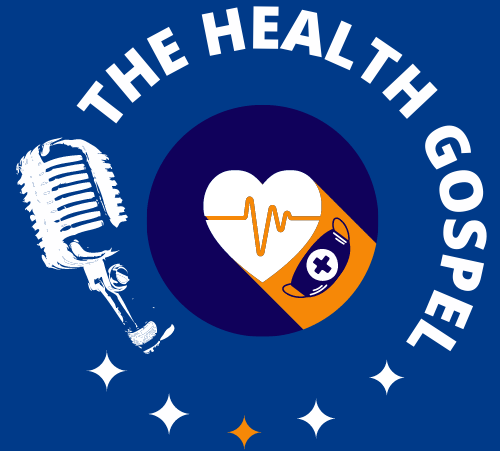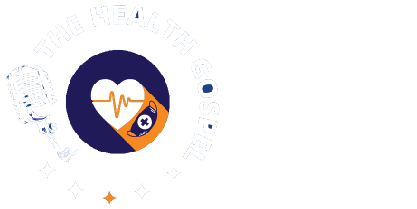
HYPERTENSION SERIES 5
How to prevent High BP
Do you know it is possible to prevent hypertension even if your parents are Hypertensive? What can you do to avoid this?
Keep reading, as this post is an exposition of specific practices that can help you prevent hypertension.
These measures also improve blood pressure control in persons who have hypertension and are on medication.
Having similar eating, lifestyle habit, and cooking style drives the predisposition of people living together to having or developing hypertension.
The following are practical steps to help you prevent hypertension
Be physically active.
Physical inactivity increases your risk of hypertension. You have a sedentary lifestyle if you are seated for most of the day. And your risk of heart disease increases significantly if you spend more than 10 hours of your day, seated or lying down. This means that you are physically inactive.
The key thing is to move more and sit less. People who work remotely can reduce this when they replace their chairs with a desk treadmill. This will help them to remain physically active while working on their computers.
Setting a reminder on a smartwatch or other electronic device can help you know when you should stand, stretch and take a short walk. You should preferably engage in activities that increase your heart rate such as brisk walking, running, jumping, swimming, aerobic exercises, etc.
An adult needs at least two and half hours of physical activity per week. This comes to 30 minutes of activity for 5 days a week. Here, consistency is more beneficial than intensity. For instance, daily physical activity of twenty minutes, trumps a two -hours physical activity, once a week or five hours every other week.
Ways to increase your level of physical activity during the day are
-Using the stairs instead of the elevator, -Parking far away from your destination so that you can take a walk,
-Walking short distances instead of driving, -Cycling, and so on.
Children and adolescents need more time (at least an hour per day for 5 days) to perform physical activity. Allow children to play in the playground.
Avoid the use of tobacco
This includes both chewing tobacco and smoking cigarettes. Tobacco causes hypertension in 2 major ways. The nicotine content increases the risk of narrowing your blood vessels, thereby raising your BP. Secondly, carbon monoxide which you inhale reduces the ability of your blood cells to carry oxygen to vital organs in your body. Thus, stopping cigarette smoking can help prevent hypertension.
Reduce salt intake.
Reducing salt intake (a major source of dietary sodium) includes salts in canned foods, chips, drinks, and packaged snacks. Sodium intake in sub-Saharan Africa is far above the WHO recommended sodium intake of two grams (equivalent to 5g of sodium chloride- table salt). This contributes to an increase in the risk of hypertension in the African population.
Eat fruits and vegetables
Eating whole fruits, rather than taking fruit juices or soft drinks is recommended to prevent hypertension. You can switch it up into fruit salads, smoothies, sauteed green leafy vegetables, sauteed carrots, green beans, and pepper. The Dietary Approaches to Stop Hypertension (DASH diet) is the best method to prevent hypertension. The DASH diet consists of eating vegetables, fruits, and whole grains such as oats, corn, bulgur, etc. Beans, nuts, poultry, low-fat dairy, and fish are part of this diet as well.
Avoid foods high in saturated fats. Saturated fats are unhealthy fat such as fatty meat, oils, full-fat dairy, pastries, and fried chips (potato, plantain). These are part of the meals that should be avoided in the DASH diet. Sugar-containing beverages and sweetened meals are high in fat and you should avoid them.
Reduce alcohol consumption.
You have probably heard that too much alcohol can raise your blood pressure. But how much is too much alcohol?
A drink is equivalent to about 350mls or 35 cl of beer (5% alcohol), a glass of wine, or a shot of spirit, vodka, or rum. On average, a bottle of beer in Nigeria is about 600mls in volume. This is already more than one drink.
The definition of how much alcohol can be taken without increasing the risk of hypertension varies based on gender as men should limit their drinking to 2 alcoholic drinks or less per day. Women, on the other hand, should have only one drink a week.
Reduce or manage stress.
Stress has an indirect relationship with an increase in your BP. You can not totally avoid being in stressful situations. Signs that you are stressed include
-Loss of appetite,
-Sweating
-Headaches,
-Difficulty with concentrating on one task
-Getting easily irritated
-Being anxious and worrying a lot about different things.
Stress causes the release of stress hormones, which cause your blood vessels to become narrow and increase your BP. If this is sustained you may begin to cope with it by turning to bad habits like smoking, drinking alcohol, or excessive eating which are all risk factors for stroke.
Anxiety and stress can be reduced with physical activity. This releases feel-good hormones that help relax your vessels and counteract stress hormones that cause an increase in BP.
Get Adequate Sleep
Sleeping for at least 7 hours can prevent hypertension. Difficulty with falling asleep, frequent interruptions during sleep, and short sleep duration are all sleep problems that may increase the risk of hypertension.
Sleep apnea, a condition in which your breathing ceases for a few seconds while you are asleep, increases the risk of hypertension too. This can be treated with some medical devices and weight loss
Have problems with getting adequate refreshing sleep? Try engaging in physical activity. It can help you sleep better.
Maintain a healthy weight
You can achieve this by choosing healthy food and physical activity. Maintenance of a healthy weight also helps reduce the likelihood of having sleep apnea. Thereby
preventing hypertension.
These measures, though for prevention, can also improve BP control in those who are hypertensive. Home BP monitoring with the appropriate accurate device is imperative. As these habits are sustained, they would need fewer drugs to control their BP.
Prevention is not only better, but cheaper than cure. We are open to questions and comments. Thank you for the feedback you have dropped so far.







